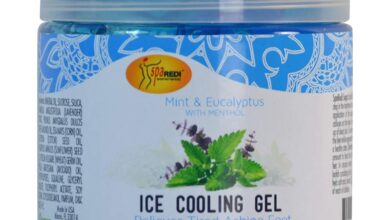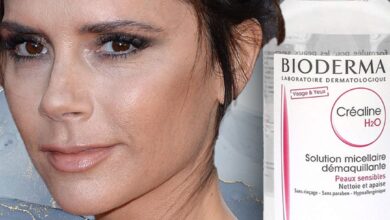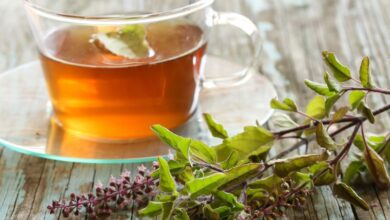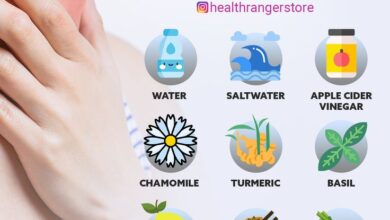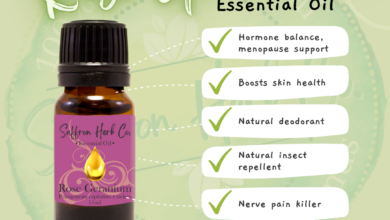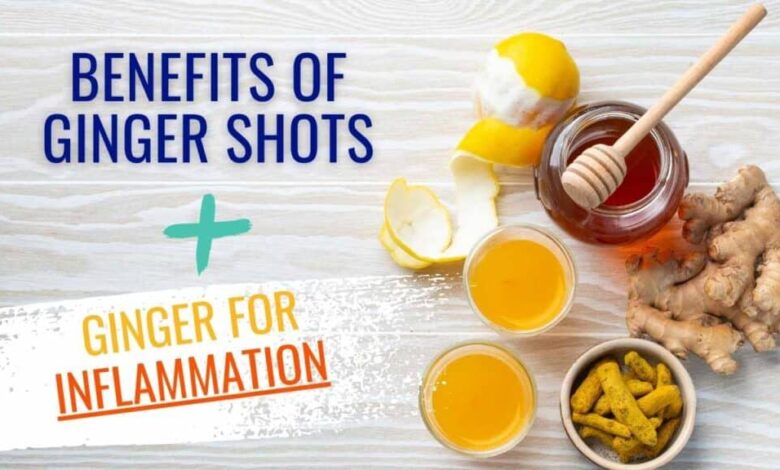
Are Ginger Shots Actually Helpful in Reducing Acne?
Are ginger shots actually helpful in reducing acne? That’s the burning question we’re tackling today! We’ve all been there, staring in the mirror at a breakout, desperately searching for a solution. Ginger, with its vibrant flavor and reputation for health benefits, has emerged as a potential contender in the acne-fighting arena. But does the hype live up to reality?
Let’s dive into the science and see if incorporating ginger shots into your routine could actually clear your skin.
This post explores the potential benefits of ginger for acne, examining its anti-inflammatory and antibacterial properties. We’ll look at the scientific evidence (or lack thereof!), discuss different ways to prepare ginger shots, and weigh the pros and cons. We’ll also touch on potential side effects and compare ginger shots to other acne treatments. Get ready to uncover the truth about this spicy skin solution!
Introduction to Ginger and its Properties
Ginger, botanically known asZingiber officinale*, is a rhizomatous herbaceous perennial belonging to the Zingiberaceae family. It’s a spice widely recognized for its pungent flavor and distinct aroma, but its uses extend far beyond culinary applications. For centuries, ginger has been valued for its potential health benefits, stemming from its rich nutritional profile and bioactive compounds.Ginger’s nutritional composition includes carbohydrates, dietary fiber, protein, and various essential minerals.
It’s a good source of manganese, magnesium, and potassium. However, its true power lies in its concentration of bioactive compounds, responsible for many of its purported therapeutic effects.
Bioactive Compounds in Ginger and Their Potential Effects
The potent effects of ginger are largely attributed to its diverse array of bioactive compounds, including gingerols, shogaols, paradols, and zingerone. These compounds possess a range of pharmacological activities. Gingerols, the predominant bioactive compounds in fresh ginger, are responsible for its pungent taste and are associated with anti-inflammatory, antioxidant, and anti-nausea properties. Shogaols, formed during the drying and processing of ginger, are believed to be even more potent than gingerols in some respects.
Paradols contribute to the spicy heat of ginger, while zingerone contributes to its characteristic aroma and also possesses antioxidant properties. These compounds interact synergistically, contributing to the overall therapeutic profile of ginger. Research suggests these bioactive components can influence various bodily functions, impacting everything from digestion to inflammation. For example, studies have shown ginger’s effectiveness in reducing nausea and vomiting, particularly in pregnant women and individuals undergoing chemotherapy.
Traditional Uses of Ginger Across Cultures
Ginger’s historical and cultural significance is vast. Across numerous cultures and traditions, ginger has been utilized for its medicinal properties. In traditional Chinese medicine, ginger is considered a warming herb used to treat various ailments, including digestive upset and cold symptoms. In Ayurvedic medicine, it plays a significant role in balancing the body’s energies and promoting overall health.
Similarly, in many other cultures across the globe, ginger has been a staple remedy for digestive problems, inflammation, and even respiratory issues. The versatility of its applications reflects its wide-ranging potential benefits. For example, ginger tea is a common home remedy for soothing upset stomachs in many parts of the world. This longstanding use in diverse cultures underscores its enduring relevance and potential efficacy.
Acne Formation and Underlying Causes
Acne, a common skin condition, affects millions worldwide. Understanding its development is crucial for effective management. It’s a complex process involving a combination of hormonal fluctuations, bacterial activity, and inflammation within the skin’s pores.Acne develops when hair follicles become clogged with dead skin cells and oil (sebum). This creates a perfect environment for the bacteria
- Cutibacterium acnes* (formerly known as
- Propionibacterium acnes*) to thrive. The bacteria, along with inflammation, trigger the formation of pimples, blackheads, and whiteheads. Hormonal changes, particularly during puberty, pregnancy, and menstruation, significantly influence sebum production, increasing the likelihood of acne breakouts. The increased androgen levels stimulate sebaceous glands to produce more oil, leading to clogged pores.
Types of Acne and Their Characteristics, Are ginger shots actually helpful in reducing acne
Acne presents in various forms, each with distinct characteristics. Mild acne may involve comedones (blackheads and whiteheads), while moderate acne includes papules (small, red bumps) and pustules (pus-filled bumps). Severe acne, often called nodulocystic acne, features large, painful nodules and cysts that can lead to scarring. The severity and type of acne can vary significantly between individuals.
Factors Contributing to Acne Breakouts
Several factors contribute to the development and severity of acne. Genetic predisposition plays a significant role, with some individuals inherently more susceptible to acne than others. Dietary factors, particularly high-glycemic index foods, have been linked to increased sebum production and inflammation. Stress can also exacerbate acne, as it influences hormone levels and immune responses. Other factors include certain medications, cosmetics, and environmental pollutants.
For example, individuals with a family history of acne are more likely to develop the condition themselves, highlighting the role of genetics. A diet high in sugary drinks and processed foods may worsen acne in susceptible individuals. Similarly, chronic stress can trigger hormonal imbalances and inflammation, contributing to acne flare-ups.
Ginger’s Potential Anti-inflammatory Effects: Are Ginger Shots Actually Helpful In Reducing Acne
Ginger’s anti-inflammatory properties have been a subject of significant research, and its potential benefits for skin conditions like acne are gaining attention. While more research is needed specifically on its topical application for acne, the existing evidence suggests a mechanism through which it could help alleviate inflammation.The anti-inflammatory effects of ginger are primarily attributed to its bioactive compounds, particularly gingerols and shogaols.
These compounds work through various pathways to modulate the inflammatory response within the body.
Mechanisms of Ginger’s Anti-inflammatory Action in the Skin
Gingerols and shogaols, the pungent compounds responsible for ginger’s characteristic flavor and aroma, exert their anti-inflammatory effects by inhibiting the production of pro-inflammatory cytokines and chemokines. These molecules are key players in the inflammatory cascade, contributing to redness, swelling, and pain associated with acne. Specifically, ginger has been shown to reduce the production of tumor necrosis factor-alpha (TNF-α) and interleukin-6 (IL-6), both potent inflammatory mediators implicated in acne pathogenesis.
Furthermore, ginger extracts have demonstrated the ability to suppress the activity of enzymes like cyclooxygenase-2 (COX-2) and lipoxygenase, which are involved in the production of inflammatory prostaglandins and leukotrienes, respectively. This multifaceted action on different stages of the inflammatory pathway contributes to its overall anti-inflammatory effect.
Comparison of Ginger’s Anti-inflammatory Effects with Other Agents
Numerous anti-inflammatory agents are currently used to treat acne, including topical corticosteroids, retinoids, and salicylic acid. While these agents are effective, they can sometimes have side effects such as skin thinning (corticosteroids), dryness and irritation (retinoids), or peeling (salicylic acid). Ginger, being a natural substance, presents a potentially gentler alternative. However, it’s crucial to understand that direct comparisons are challenging due to differences in application methods, concentrations, and study designs.
While some studies suggest ginger’s anti-inflammatory potency is comparable to certain conventional treatments in specific contexts, it is not a direct replacement and further research is needed to establish its efficacy and safety in acne treatment. The strength of ginger’s anti-inflammatory effects is often context-dependent, varying with the specific ginger extract used and the dosage. For example, high concentrations of gingerol may show stronger effects compared to lower concentrations.
Ginger’s Potential Impact on Acne-Related Bacteria
The bacterium Cutibacterium acnes (formerly Propionibacterium acnes) plays a significant role in the development of acne. While not the sole cause, its presence and activity within the pores contribute to inflammation and lesion formation. Therefore, exploring the potential of ginger to influence this bacterium is crucial in understanding its possible role in acne treatment. This section will examine the research on ginger’s antibacterial properties and its potential effects on C. acnes specifically.The antimicrobial properties of ginger have been documented in various studies.
These studies have shown that ginger extracts, particularly those containing gingerol, exhibit antibacterial activity against a range of bacteria. The mechanism of action often involves disrupting bacterial cell membranes or inhibiting bacterial growth. However, the specific effects on C. acnes require more focused investigation.
So, are ginger shots actually helpful for acne? It’s a question I’ve been researching, and honestly, the evidence is mixed. I’ve been looking at holistic approaches, and it made me think about managing other health challenges holistically too, like the amazing strategies outlined in this article on strategies to manage Tourette syndrome in children , which highlights the importance of a comprehensive approach.
Getting back to ginger shots, I’m still experimenting, but I’ll keep you updated on my progress!
Ginger’s Antibacterial Activity Against Cutibacterium acnes
While extensive research directly linking topical ginger application to C. acnes reduction in acne treatment is limited, the broader antibacterial properties of ginger suggest potential. Studies have shown ginger extracts to be effective against other acne-causing bacteria, suggesting a possible mechanism of action against C. acnes. Further research is needed to determine the precise effectiveness and optimal concentration for topical application in acne treatment.
So, are ginger shots actually helpful in reducing acne? I’ve been seeing conflicting information online. It’s got me thinking about how much we focus on seemingly small health issues, while ignoring bigger ones, like the serious risk factors that make stroke more dangerous. Understanding those risks is crucial, but getting back to ginger shots – I’m still researching whether they truly impact acne or if it’s more of a placebo effect.
This research should also consider the potential for synergistic effects when combined with other acne treatments. For example, a study could investigate the combined effect of ginger extract and benzoyl peroxide, a common acne medication, on C. acnes growth. Such research could provide valuable insights into the potential of ginger as a complementary acne treatment.
Studies on Topical Application of Ginger for Acne
Currently, there’s a scarcity of robust clinical trials directly examining the topical application of ginger on acne-prone skin. Many studies focus on the broader antibacterial and anti-inflammatory properties of ginger, but specific studies focused solely on its topical application for acne treatment are lacking. This necessitates further research to assess the efficacy and safety of topical ginger application for acne management.
Future studies could involve controlled clinical trials comparing topical ginger application to placebo or standard acne treatments. These trials should also investigate optimal concentrations and formulations of ginger extracts for topical use, considering factors like skin sensitivity and potential irritation. The results of such studies would provide a more comprehensive understanding of ginger’s potential role in acne treatment.
Ginger Shots
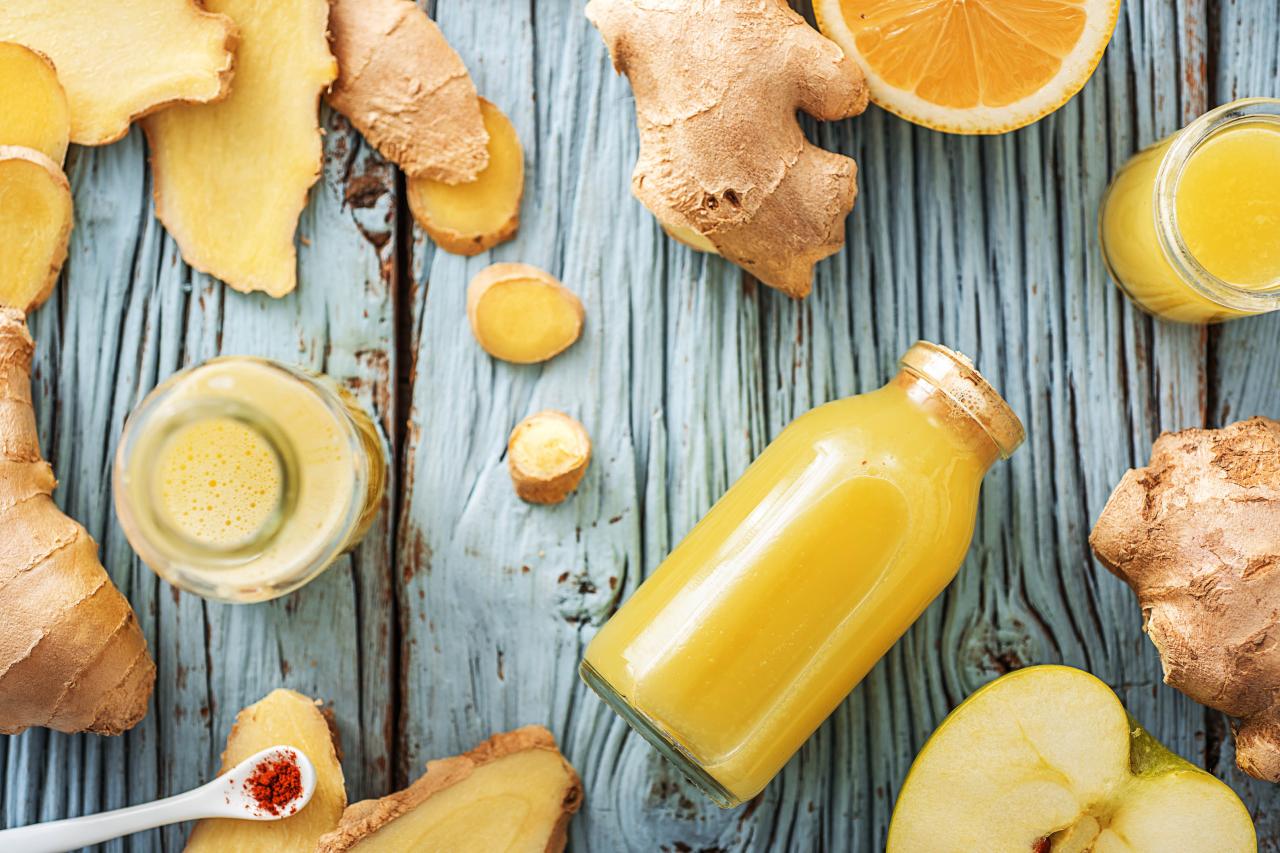
Source: hellofresh.com
So, are ginger shots actually helpful in reducing acne? It’s a question I’ve been researching, and honestly, the answer seems complex. It ties into broader nutritional needs, and I found a fascinating article exploring whether are women and men receptive of different types of food and game changing superfoods for women , which impacts how our bodies react to things like ginger.
Ultimately, more research is needed to definitively say if ginger shots are a miracle acne cure, but individual responses might vary widely.
Ginger shots have become increasingly popular as a purported remedy for various ailments, including acne. While more research is needed to definitively confirm their effectiveness against acne, understanding how to prepare and consume them properly is crucial if you’re considering incorporating them into your skincare routine. This section explores different preparation methods and offers guidance on optimal consumption.
Ginger Shot Preparation and Consumption Methods
Different methods exist for preparing ginger shots, each with its own advantages and disadvantages. The choice depends on personal preference, available equipment, and desired taste and texture.
| Method | Ingredients | Preparation Steps | Potential Benefits |
|---|---|---|---|
| Juicing | Fresh ginger root, optional: lemon, apple, or other fruits/vegetables | Wash and peel ginger. Juice using a juicer. Mix with other ingredients if desired. | High ginger concentration, quick preparation, easily digestible. |
| Blending | Fresh ginger root, optional: water, lemon juice, honey | Wash and peel ginger. Blend with other ingredients until smooth. Strain if desired for a smoother consistency. | More pulp and fiber retained, potentially higher nutrient content, easier to customize flavors. |
| Ginger Powder | Ginger powder, water, optional: honey, lemon juice | Mix ginger powder with water or other liquid until dissolved. Adjust sweetness and taste as needed. | Convenient, longer shelf life, easier storage, less preparation time. However, bioavailability might be lower compared to fresh ginger. |
Common variations in ginger shot recipes often involve adding other ingredients to enhance the taste or purported health benefits. For example, adding lemon juice increases the Vitamin C content and provides a tart flavor. Honey can add sweetness and potentially soothe the throat, while other fruits and vegetables like apples or carrots can add nutrients and modify the flavor profile.
The impact of these additions on acne reduction is not yet scientifically established, but they can certainly influence palatability and overall nutritional value. The concentration of ginger remains the key factor to consider, as higher concentrations are associated with a more pronounced anti-inflammatory effect.
Ginger Shot Consumption
The following infographic illustrates the proper way to consume a ginger shot:
Infographic Description: The infographic is a simple, clean design using a predominantly white background with pops of bright orange and green. The central image is a cartoon-like illustration of a person taking a small shot glass of a vibrant orange ginger shot. The shot glass is slightly tilted, suggesting the act of drinking. The background features smaller, stylized ginger root illustrations.
The text is clear and concise, using a sans-serif font. At the top, it reads “Ginger Shot Consumption Guide.” Below the main image, three numbered steps are clearly Artikeld: 1. Start with a small amount (1-2 ounces); 2. Sip slowly; 3. Allow the flavor to fully develop on your palate.
A small cautionary note at the bottom suggests starting with a smaller amount to assess your tolerance before increasing the quantity.
Scientific Evidence Supporting or Refuting the Use of Ginger Shots for Acne
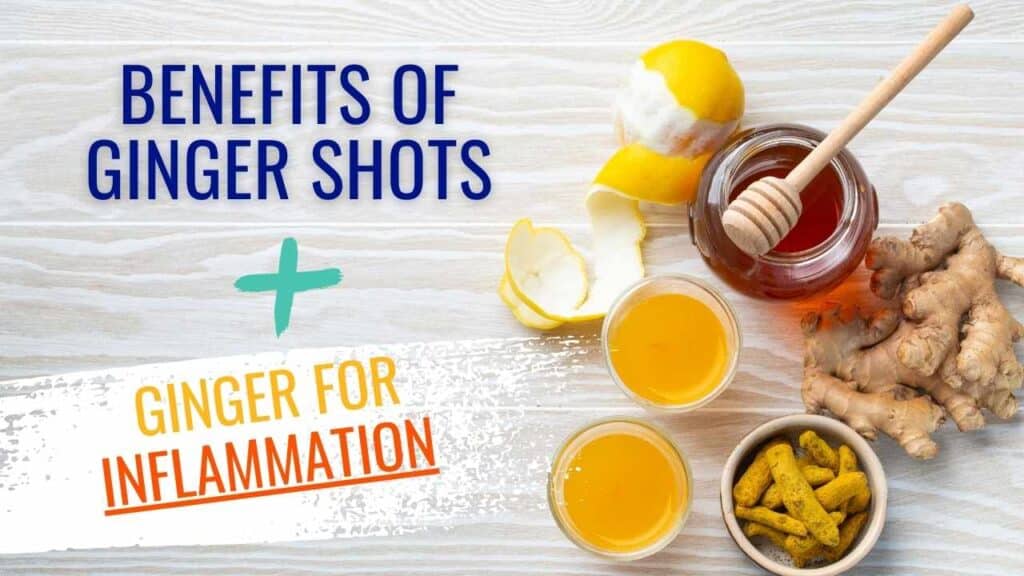
Source: fwdfuel.com
While the anecdotal evidence suggesting ginger’s benefits for acne is plentiful, the scientific backing remains limited. Current research primarily focuses on ginger’s individual components and their anti-inflammatory and antibacterial properties, rather than the direct impact of ginger shots on acne. Therefore, it’s crucial to critically evaluate the available data and acknowledge the gaps in our understanding.The existing literature shows promising results in vitro (in a lab setting) and in animal studies, demonstrating ginger’s anti-inflammatory and antimicrobial capabilities.
However, these findings don’t automatically translate to the effectiveness of ginger shots in treating human acne. The concentration of active compounds in a typical ginger shot, the bioavailability of these compounds when ingested, and the complex interplay of factors contributing to acne all influence the overall effect.
Limitations and Biases in Current Research
Several limitations hinder a definitive conclusion regarding ginger shots and acne. Most studies focus on isolated ginger extracts or specific compounds like gingerol, rather than the whole ginger shot, which contains a complex mixture of substances. This makes it difficult to determine which component(s) contribute most significantly to any observed effects. Furthermore, many studies are conducted in vitro or on animals, making it challenging to extrapolate the results to human acne treatment.
The lack of large-scale, well-designed human clinical trials specifically investigating the effect of ginger shots on acne is a significant gap in the research. Existing studies often lack control groups or have small sample sizes, introducing biases that could influence the interpretation of the results. Finally, individual responses to ginger can vary, making it difficult to draw universal conclusions.
Need for Further Research
Given the current limitations, more robust research is needed to confirm or refute the claims surrounding ginger shots and acne reduction. Well-designed, randomized controlled trials involving a large number of participants are necessary. These trials should compare the effectiveness of ginger shots to a placebo or standard acne treatments, while controlling for other factors that might influence acne development.
Further research should also investigate the optimal concentration of ginger in a shot, the ideal duration of treatment, and potential side effects. Studies exploring the interaction between ginger’s components and other acne treatments could also provide valuable insights. Only through rigorous scientific investigation can we determine the true potential of ginger shots as an acne treatment.
Potential Side Effects and Precautions
While ginger offers potential benefits, it’s crucial to be aware of potential side effects and necessary precautions before incorporating it into your routine, especially in the form of concentrated ginger shots. Like any natural remedy, ginger isn’t without its potential drawbacks, particularly when consumed in large quantities.Ginger’s generally considered safe for most people, but excessive consumption can lead to various issues.
These side effects are usually mild and temporary, but understanding them is essential for responsible use.
Potential Side Effects of High Ginger Consumption
Consuming excessive amounts of ginger can result in several unpleasant side effects. These can range from mild digestive upset to more significant issues. It’s important to remember that the concentration of ginger in a shot is significantly higher than in a typical culinary application.
- Gastrointestinal Upset: This is the most common side effect and can manifest as heartburn, diarrhea, or abdominal discomfort. The pungent nature of ginger can irritate the digestive tract if consumed in large quantities.
- Mouth Irritation: The strong flavor of ginger can cause burning or irritation in the mouth and throat, especially in individuals sensitive to spicy foods.
- Acid Reflux: For individuals already prone to acid reflux or heartburn, ginger may exacerbate these conditions, particularly in concentrated forms like shots.
- Allergic Reactions: Although rare, allergic reactions to ginger are possible. Symptoms can range from mild skin rashes to more severe reactions requiring immediate medical attention.
- Blood Thinning Effects: Ginger possesses blood-thinning properties. While this can be beneficial in certain circumstances, it can pose risks for individuals taking anticoagulant medications or those with bleeding disorders. Increased bleeding risk is a significant concern.
Precautions Before Using Ginger Shots
Before incorporating ginger shots into your daily routine, several precautions should be considered. These precautions are especially important for individuals with specific health conditions or those taking certain medications.
- Pregnancy and Breastfeeding: Pregnant and breastfeeding women should consult their doctor before consuming significant amounts of ginger, as its effects on pregnancy and breastfeeding are not fully understood.
- Existing Health Conditions: Individuals with gallbladder problems, bleeding disorders, or those undergoing surgery should exercise caution and consult their physician before using ginger shots. The blood-thinning effect is a particular concern.
- Medication Interactions: Ginger can interact with certain medications, including blood thinners (warfarin, aspirin), diabetes medications, and some heart medications. It’s crucial to consult a doctor or pharmacist to assess potential drug interactions before consuming ginger shots, particularly if you’re already on medication.
- Starting Slowly: Begin with a small amount of ginger to assess your tolerance. Don’t immediately consume a large quantity of a concentrated ginger shot. Gradually increase the amount if tolerated well.
Potential Drug Interactions with Ginger
The blood-thinning properties of ginger are the primary concern regarding drug interactions. Consuming ginger alongside anticoagulant medications can increase the risk of bleeding. Similarly, ginger might interact with diabetes medications, potentially affecting blood sugar levels. It’s crucial to have open communication with your doctor or pharmacist about your medication regimen before incorporating ginger shots into your diet.
They can help assess potential risks and provide personalized advice. This proactive approach ensures your safety and well-being.
Alternative Acne Treatments and Complementary Approaches
So, we’ve explored the potential (and limitations!) of ginger shots for acne. But let’s be clear: ginger isn’t a miracle cure. It’s crucial to understand how it fits into the broader landscape of acne treatment and consider it alongside other, more established methods. This section will compare ginger to conventional treatments and explore how it might work synergistically with other complementary approaches.
Many effective acne treatments exist, each with its own mechanism of action and potential side effects. Understanding these differences is key to choosing the right approach, or a combination of approaches, for your skin.
Comparison of Ginger Shots with Established Acne Treatments
Ginger shots, as we’ve discussed, offer a potential anti-inflammatory and antibacterial approach. However, their efficacy for acne compared to established treatments like topical retinoids, antibiotics, and benzoyl peroxide remains largely unproven by extensive clinical trials. Topical retinoids, for example, work by increasing skin cell turnover, preventing clogged pores. Antibiotics target acne-causing bacteria directly, while benzoyl peroxide has both antibacterial and anti-inflammatory properties.
These treatments have a strong evidence base supporting their effectiveness, unlike ginger shots, which currently lack substantial clinical data to confirm their efficacy for acne treatment. While ginger might offer a gentle, complementary approach, it shouldn’t replace these proven methods without consulting a dermatologist.
Combining Ginger Shots with Complementary Approaches
The potential benefits of combining ginger shots with a holistic approach to acne management are significant. A healthy diet, rich in fruits, vegetables, and antioxidants, can support overall skin health. Reducing stress through techniques like meditation or yoga can also impact acne, as stress is known to exacerbate breakouts. Combining these lifestyle modifications with the potential anti-inflammatory effects of ginger might offer a synergistic effect, leading to improved skin clarity.
For instance, someone following a low-glycemic diet, known to reduce inflammation, could potentially see enhanced benefits when incorporating ginger shots into their routine. However, it’s crucial to remember that this is based on the theoretical benefits of combining these approaches, and further research is needed to confirm this synergy.
Lifestyle Modifications for Healthy Skin
Adopting a holistic approach to skin health involves several lifestyle modifications. These changes can support the body’s natural healing processes and contribute to clearer skin.
Making these changes can significantly impact skin health. For example, someone who consistently follows these guidelines might notice a reduction in acne breakouts even without other treatments.
- Maintain a balanced diet low in processed foods, sugar, and dairy.
- Drink plenty of water to keep skin hydrated.
- Get regular exercise to improve circulation and reduce stress.
- Prioritize adequate sleep for skin cell regeneration.
- Manage stress through relaxation techniques like meditation or yoga.
- Cleanse your face gently twice daily with a mild cleanser.
- Avoid harsh scrubbing or excessive touching of the face.
- Use non-comedogenic (non-pore-clogging) skincare products.
Conclusive Thoughts
So, are ginger shots a miracle cure for acne? The jury’s still out on that one. While ginger possesses impressive anti-inflammatory and antibacterial properties, more research is needed to definitively confirm its effectiveness in treating acne. However, incorporating ginger into a holistic approach to skin health, alongside a balanced diet, stress management, and perhaps other established treatments, might offer additional benefits.
If you’re intrigued, give it a try – but remember to listen to your body and consult with a dermatologist if you have concerns.
Common Queries
Can I drink ginger shots every day?
While generally safe, daily consumption of large quantities of ginger can lead to digestive upset. Start with a small amount and see how your body reacts.
Are there any interactions between ginger and medications?
Yes, ginger can interact with certain medications, such as blood thinners. Consult your doctor before incorporating ginger shots into your routine if you’re on any medication.
Is it better to juice or blend ginger for a shot?
Both methods work! Juicing yields a more potent shot, while blending incorporates more of the ginger fiber.
How long does it take to see results from ginger shots for acne?
There’s no set timeframe. Results vary from person to person, and it might take several weeks or even months to notice a difference.
